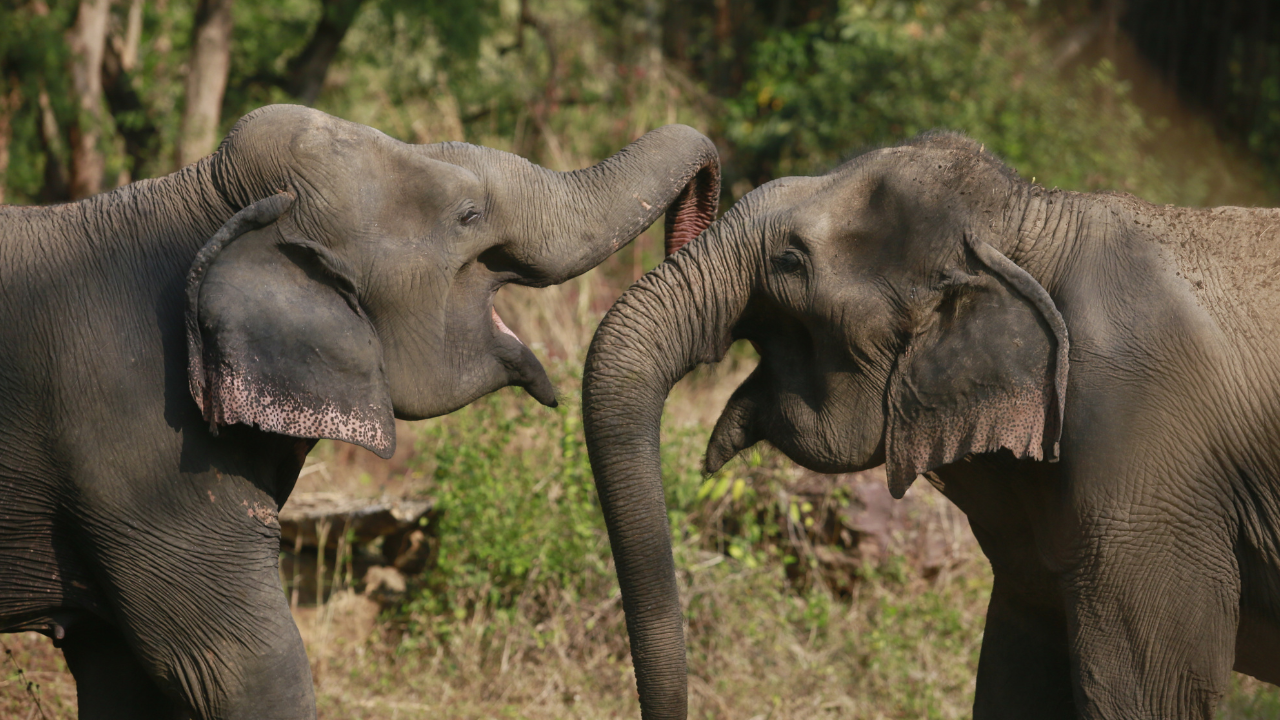Traditional medicine
Ending commercial exploitation
Ending the exploitation of wild animals used in Traditional Medicine

Animal Awareness Days
Join the global celebration of snakes - learn about their unique role in nature, their challenges, and how you can support their protection.
World Snake Day is a global awareness day dedicated to appreciating the diversity, beauty, and ecological importance of snakes. Whether admired or feared, these remarkable reptiles deserve our respect and protection.
World Snake Day (also known as Snake Day or International Snake Day) is held on July 16th every year. This date is a chance to celebrate snakes and raise awareness of their dangers.
International Snake Day is when conservationists, wildlife organisations, and animal lovers from across the world come together to celebrate the characteristics that make snakes special and unique.
It’s also an opportunity to highlight threats to snake survival, owing to the exotic pet trade, their use in cruel social media videos, and changing habitats.
Here are some incredible facts about snakes:
Snake habitats are being destroyed to make way for agriculture and urban development, and climate change is also impacting them.
In addition, people's fear of snakes leads them to kill non-venomous snakes when they come into contact with them. Snakes are also often overlooked in conservation in favour of more charismatic animals.
Most significantly, snakes are taken from the wild or bred in captivity to be kept as pets as part of the exotic pet trade. Snakes are shipped huge distances, and many die in transit. Many snakes die in their owners' homes because their specific needs are nearly impossible to meet in captivity.
They are then used as props in fake “animal rescue” videos on YouTube. People film domesticated animals being attacked and rescued from predators, like snakes. The snakes in these videos are cruelly treated and injured to create viral content.
But it doesn’t have to be this way. You can be part of the solution. In the next section, discover simple but powerful actions you can take to help protect snakes and support their conservation.
Many animals need your help. Find out about other animal awareness days.

Donate now
When you make a donation, you’ll join a passionate group of supporters who are determined to change the world for animals. We're fighting animal cruelty wherever we find it — are you with us?
Click to donateYes, snakes need light from the sun to move and keep their bodily functions working properly. This is because snakes are ectothermic — their body temperature changes according to external sources.
Some snake species sleep at night. Some — like the ball python — sleep during the day. They spend their days in a burrow before leaving at night to hunt, climb trees, and explore.
The distance a snake can travel depends on the species. The short-tailed python has been shown to cover a mean distance of less than 200 metres in around 50 days.
A snake’s diet varies from species to species. Some eat nearly every day. But if a snake has a particularly big meal they can go for a year without eating again.
Snakes are sentient beings that experience a range of emotions. They flick their tongues to understand their surroundings. They coil tightly, flatten their bodies, or shake their tails to communicate fear or aggression.
Ending commercial exploitation
Ending the exploitation of wild animals used in Traditional Medicine
Blog
Discover the most interesting facts about pythons. We share python facts about their size, behaviour, habitat, threats, and conservation.
Blog
We’re calling for an end to the cruel global wildlife trade – to prevent animal suffering, protect our planet and help prevent further zoonotic disease outbreaks like COVID-19. But we can’t do it without you